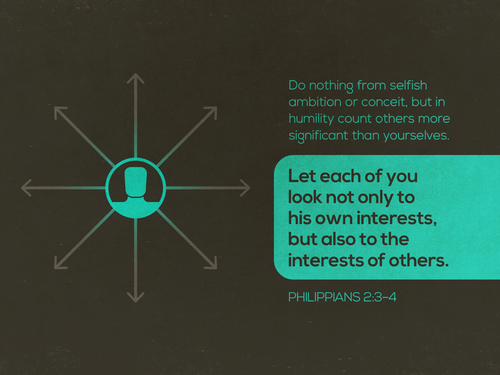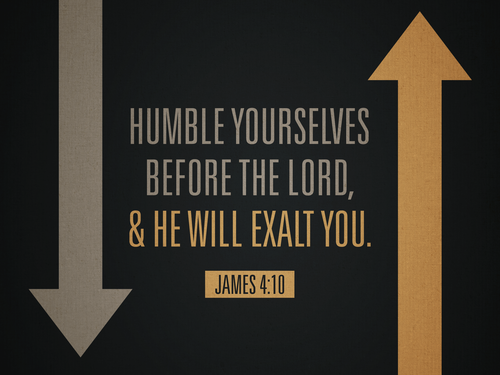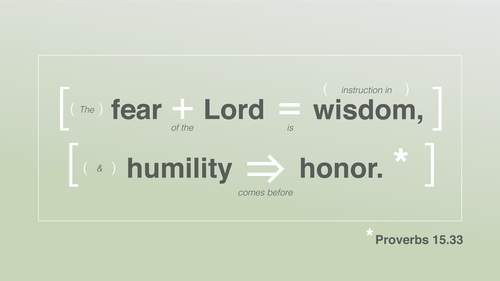Spiritual Growth Resources
Topic for this week: Humility
Theme for the month of January: Making Things Right
The Carmichael SDA Church is providing spiritual growth resources for individuals, couples, families, and small groups as an extension during this pandemic for a church that is scattered like salt and to indeed be salty; to be light and receive another infusion of power. Pick and choose from these resources for your spiritual growth, whether it’s during your time of personal devotions or family worship or small group gathering. The 10 options include:
Video
Bible Dialogue
Intro
Benjamin Franklin developed a set of disciplines which he hoped would enable him to attain moral perfection. He drew up a list of twelve virtues which he considered essential to achieving the good life. He ruled each page with seven lines. Daily he appraised and recorded his behavior. During a conversation Franklin shared his profile of excellence with an old Quaker, who quietly informed him he had omitted the virtue of humility. - G. Curtis Jones, 1000 Illustrations for Preaching and Teaching (Nashville, TN: Broadman & Holman Publishers, 1986), 9–10.
Humility can refer to a state of being—generally lowness in status rank or economic means. In this sense, humility is the opposite of importance or wealth. It can also refer to a virtue that involves a modest self-perception. In this sense, it is the opposite of pride and arrogance.
According to Psychology Today, a “humble [person doesn’t] downplay their accomplishments or characteristics; they simply [don’t] think they should be treated special because of them.”
Humility is one of the most admired virtues in a person. It is also probably one of the most misunderstood. Sometimes it is interchanged and confused with “meekness”. Here’s an explanation: “Everyone who has humility has meekness and every person with meekness is likely also humble. Meekness is contrasted with humility as referring to behavior toward others, where humbleness refers to an attitude towards oneself but is still seen by others. Both are attributes of a godly person and they are fruits of the Spirit. God will not save those who are proud and have a pride-filled heart but He will only “save all the humble of the earth” (Psalm 76:9) as “he adorns the humble with salvation” (Psalm 149:4).” https://www.patheos.com/blogs/christiancrier/2015/07/23/what-is-the-biblical-difference-between-meekness-and-humility/
How do you see yourself? Are you boasting about it?
The apostle Paul says, “For by the grace given to me I say to everyone among you not to think of himself more highly than he ought to think, but to think with sober judgment, each according to the measure of faith that God has assigned.” Romans 12:3
Benjamin Franklin developed a set of disciplines which he hoped would enable him to attain moral perfection. He drew up a list of twelve virtues which he considered essential to achieving the good life. He ruled each page with seven lines. Daily he appraised and recorded his behavior. During a conversation Franklin shared his profile of excellence with an old Quaker, who quietly informed him he had omitted the virtue of humility. - G. Curtis Jones, 1000 Illustrations for Preaching and Teaching (Nashville, TN: Broadman & Holman Publishers, 1986), 9–10.
Humility can refer to a state of being—generally lowness in status rank or economic means. In this sense, humility is the opposite of importance or wealth. It can also refer to a virtue that involves a modest self-perception. In this sense, it is the opposite of pride and arrogance.
According to Psychology Today, a “humble [person doesn’t] downplay their accomplishments or characteristics; they simply [don’t] think they should be treated special because of them.”
Humility is one of the most admired virtues in a person. It is also probably one of the most misunderstood. Sometimes it is interchanged and confused with “meekness”. Here’s an explanation: “Everyone who has humility has meekness and every person with meekness is likely also humble. Meekness is contrasted with humility as referring to behavior toward others, where humbleness refers to an attitude towards oneself but is still seen by others. Both are attributes of a godly person and they are fruits of the Spirit. God will not save those who are proud and have a pride-filled heart but He will only “save all the humble of the earth” (Psalm 76:9) as “he adorns the humble with salvation” (Psalm 149:4).” https://www.patheos.com/blogs/christiancrier/2015/07/23/what-is-the-biblical-difference-between-meekness-and-humility/
How do you see yourself? Are you boasting about it?
The apostle Paul says, “For by the grace given to me I say to everyone among you not to think of himself more highly than he ought to think, but to think with sober judgment, each according to the measure of faith that God has assigned.” Romans 12:3
Bible Dialogue
The apostle Paul’s conversion to Christ (from Saul to Paul) led him out of a life of pride onto a journey toward humility. Before surrendering to Christ he was a zealous religious leader, fighting supposedly for God’s cause, though fighting the wrong battle for the wrong reasons. It wasn’t until he was literally “knocked off his horse” that he came face to face with Jesus and then he had to face the real Paul within himself. His transformation didn’t happen overnight even though a quick read through Acts 9 makes it seem like it was a quick turnaround. Galatians 1:18 tells us that it was around 3 years from the time he was in Damascus until he finally got in touch with some disciples. This was just the beginning of Paul’s journey. Through his letters Paul is an example worth looking into when it comes to observing how Jesus can change even the hardest religious zealot into a humble servant.
Take the High Road
Think of a time when you thought you were doing the right thing only to find out you were in the wrong. How easy or hard was it to admit it?
Read Philippians 2:1-11
- What does a humble person look like to you?
- A poor person
- A quite person
- Someone who avoids disagreements
- Just an overall “nice” person.
- Someone who doesn’t talk about themselves too much.
- Someone you feel comfortable around.
- Other.
2. What would “complete your joy”? (vs. 2)
- Having enough money in the bank.
- Having a good job.
- Graduating from school.
- Eating to your heart’s content.
- Being able to sleep as long as you want
- Having good relationships.
- Passing on something good to the next generation.
- Other.
3. How would you explain Paul’s words “counting others more significant than yourself? (vs. 3-4)
- Other people are worth more than me.
- I have to look out for other people’s interest before mine.
- I’d need to read more of Paul’s words to know.
- Paul didn’t mean that; I have to look out for myself first.
- It happens when one spends more time with Jesus.
- Other.
4. How is your “thinking” (mind) toward other people? (vs. 5)
- I tend to be a positive/negative person.
- I just stick to myself to avoid people.
- Others can do what they want as long as I can, too.
- I try to put myself in other people’s shoes.
- I like Paul’s idea of having the “mind” (attitude) of Christ.
- Other.
5. How do you feel about giving up your “right” or “equality” in order to save another person? (vs. 6-7).
- That’s something that only Jesus can do.
- Sounds nice but hard to do.
- Depends what rights you’re talking about.
- Depends on who that other person is.
- I won't know until the time presents itself.
- Other.
6. What’s the relationship between humility and obedience? (vs. 8)
- My preferences must give way to doing the right thing.
- I can obey but not necessarily be humble about it.
- That’s why I have a hard time being humble.
- I like to obey God, but people make it hard to be humble.
- Obedience is not possible so neither is humility.
- Other.
7. Exaltation, climbing the “corporate ladder,” “rising to the top,” are usually terms of getting ahead in different areas of life. Can one be humble and still “make it to the top.”? (vs. 9)
8. Bonus verse to consider: 1 Peter 5:6 “Humble yourselves, therefore, under the mighty hand of God so that at the proper time he may exalt you.”
Prayer Experiences
Prayer challenges us to give all credit to God for anything we accomplish or obtain. When we recognize that finishing school, getting a job, having food on our table, being successful in some area of life can all be traced back to God giving us wisdom, intelligence, strength, health, etc.
This week’s prayer experience invites you to consider when you pray to spend a good chunk of your prayer time acknowledging God’s providence and provision with specific examples. Do this before we rush to ask for more blessings.
Your supplication or request can be focused on seeing obedience, even when it doesn’t make sense, as an act of humility and not of weakness.
Read David’s prayer in 1 Chronicles 17:16-27 and pray as if you were David.
This week’s prayer experience invites you to consider when you pray to spend a good chunk of your prayer time acknowledging God’s providence and provision with specific examples. Do this before we rush to ask for more blessings.
Your supplication or request can be focused on seeing obedience, even when it doesn’t make sense, as an act of humility and not of weakness.
Read David’s prayer in 1 Chronicles 17:16-27 and pray as if you were David.
Discussion Questions
Select from these questions, or let them prompt your own questions. You can reflect on these by yourself, or discuss them with another person or group of people.
Select from these questions, or let them prompt your own questions. You can reflect on these by yourself, or discuss them with another person or group of people.
- Why is it hard to believe that the way to greatness is through humility?
- Is the lack of desire for personal, financial, or professional growth a sign of humility?
- What do you think is a healthy balance between self-confidence and humility?
- In sports and as in any other discipline, we need to recognize our limitations and be open to learning, improving and growing. Why do we celebrate that kind of questioning over asking questions in other areas of life?
- What is the difference between humility and humiliation?
- When have you felt humble?
- When is it hard to be humble?
- Most people compare themselves with others. Are you more likely to compare yourself with those who are considered better than you or worse than you? What does this have to do with humility?
- What’s a good way to get through to someone who thinks they are better than they really are? How could someone get through to you with that message?
- Does a high regard for God make you proud or humble?
- What are good ways to become humble?
- Who do you consider to be a humble person?
- On a continuum from humble to proud, where would you put yourself? Where would others put you?
Application Ideas
How do you apply Scriptures, stories and testimonies into your own life when it comes to the virtue of humility?
I think it’s safe to say that most people would like to be humble as long as we understand what true humility is like.
One idea is know when to speak up and when to resist the temptation to say something. We love to defend ourselves and sometimes to the point of offending others. So as an exercise, when tempted to say something, take a few seconds (or minutes) to think about it.
Trying to be humble can be tricky. I recently was the recipient of an email that was part of a group email and it really upset me. I began to write a response, made sure it made sense, read it a couple of times and was ready to click send. I asked myself a couple of questions before clicking send. Is my email really going to make a difference? Will I change anyone’s mind? My response will probably come back and haunt me one day. So what I did was save the email in the drafts folder. I called up a friend and shared what I was about to email back. The person, who probably agreed with what I was expressing, gave me some wise words. “Pastor, sleep on it, pray about it, and if in the morning you still feel as strong about it as you do today, then it’s up to you.”
Does that make me humble? I can’t really say because then I wouldn’t be humble, could I? I’ll let you be the judge. So the next day I forgot about the email and when I did remember, I decided to not send it at all. I had the right to send it. I thought I was right in sending a response. I think I even had facts and figures in my favor to defend myself.
It may sound cliché, but I have to learn to let God fight my battles for me. Not that I can’t defend myself, but I must do so with humility and depend more on God.
Another application idea would be to go to three different people, some from your family and some outside your family, and ask them what humility means to them and how a person can become humble. After a short discussion (in which you do most of the listening), ask them to make an assessment of your humility and then give an update in a month or two as you seek to put into practice the guidance they suggested to you. And then do it!
I think it’s safe to say that most people would like to be humble as long as we understand what true humility is like.
One idea is know when to speak up and when to resist the temptation to say something. We love to defend ourselves and sometimes to the point of offending others. So as an exercise, when tempted to say something, take a few seconds (or minutes) to think about it.
Trying to be humble can be tricky. I recently was the recipient of an email that was part of a group email and it really upset me. I began to write a response, made sure it made sense, read it a couple of times and was ready to click send. I asked myself a couple of questions before clicking send. Is my email really going to make a difference? Will I change anyone’s mind? My response will probably come back and haunt me one day. So what I did was save the email in the drafts folder. I called up a friend and shared what I was about to email back. The person, who probably agreed with what I was expressing, gave me some wise words. “Pastor, sleep on it, pray about it, and if in the morning you still feel as strong about it as you do today, then it’s up to you.”
Does that make me humble? I can’t really say because then I wouldn’t be humble, could I? I’ll let you be the judge. So the next day I forgot about the email and when I did remember, I decided to not send it at all. I had the right to send it. I thought I was right in sending a response. I think I even had facts and figures in my favor to defend myself.
It may sound cliché, but I have to learn to let God fight my battles for me. Not that I can’t defend myself, but I must do so with humility and depend more on God.
Another application idea would be to go to three different people, some from your family and some outside your family, and ask them what humility means to them and how a person can become humble. After a short discussion (in which you do most of the listening), ask them to make an assessment of your humility and then give an update in a month or two as you seek to put into practice the guidance they suggested to you. And then do it!
Sharing Options
What would the world look like if world and national leaders were known for their humility? Can you think of any leaders with that reputation?
A humble boss, CEO, tradesperson, teacher, pastor, banker, etc. So many people are skeptical of leaders these days because of the apparent need to appear tough or strong.
Share with someone else the names of people you consider to be excellent role models of humility. Ask them to share the same with you.
When you look at Jesus’ you see a humble servant who is admired by billions of people around the world. His leadership is admired because of the lives that he has impacted for thousands of years. Whether you believe him to be God or not, one thing is true, he has made a historical impact on humanity. Jesus had no army to command, no political ambitions, yet called king. Such a person bowed to wash the feet of his followers instead of asking his followers to wash his. His famous words, “I have come to serve and not be served.”
Being inspired by humble people tell us that humility is a better way. Consciously and subconsciously, we crave to be humble people and we crave to see it in others we admire.
In the business world, though it may take a little bit longer, the best way to the top is by taking the road of humility.
And here’s one more sharing option. Please share your experimenting with these Spiritual Growth Resources with Pastor Pedro Trinidad. Phone or text at 925-951-7041, or email at ptrinidad@carmsda.org.
A humble boss, CEO, tradesperson, teacher, pastor, banker, etc. So many people are skeptical of leaders these days because of the apparent need to appear tough or strong.
Share with someone else the names of people you consider to be excellent role models of humility. Ask them to share the same with you.
When you look at Jesus’ you see a humble servant who is admired by billions of people around the world. His leadership is admired because of the lives that he has impacted for thousands of years. Whether you believe him to be God or not, one thing is true, he has made a historical impact on humanity. Jesus had no army to command, no political ambitions, yet called king. Such a person bowed to wash the feet of his followers instead of asking his followers to wash his. His famous words, “I have come to serve and not be served.”
Being inspired by humble people tell us that humility is a better way. Consciously and subconsciously, we crave to be humble people and we crave to see it in others we admire.
In the business world, though it may take a little bit longer, the best way to the top is by taking the road of humility.
And here’s one more sharing option. Please share your experimenting with these Spiritual Growth Resources with Pastor Pedro Trinidad. Phone or text at 925-951-7041, or email at ptrinidad@carmsda.org.
Bible-In-My-Head, Heart, and Hand
One of the ways to practice humility is to take of your own time and sharing it with someone else which is actually a way to grow as a person and spiritually.




Sing-Along
Enjoy the variety of music that speaks of Humilituy
Songs of Worship
Click on Image Below for the Songlist
Kids of All Ages by Pastor Melissa
The Dirty Disguise
When I was a kid, I remember hearing a story about a pastor who dressed up like a homeless person on his first day at his new church. Nobody knew it was him standing on the church corner in torn jeans, dirty hair, and super smelly clothes. As the church members arrived one by one that morning, the “homeless” preacher in disguise begged them for money. Some of them gave a dollar. Some of them politely said no. Others of them were downright rude and mean to him. The preacher took note of each and every reaction from every person.
Meanwhile inside the church, people started to panic - where was the new pastor? Was he late? What were they going to do if it came time to introduce him and he didn’t show up?! What’s worse, a stinky neighborhood “homeless” man had made his way into the church, causing a scene, and was now sitting very close to the front row.
“Someone will have to remove that disgusting person before the new pastor gets here!” one person exclaimed.
“Not me - you do it!” Insisted another.
“What if we wait and ask the pastor to do it himself?” suggested a third.
“Great idea,” they agreed, and waited. But the new pastor still didn’t seem to show up.
Finally, the church service began, the announcements were made and songs were sung, and then it was time to announce the new pastor. Since he clearly wasn’t anywhere in the building, a few church leaders slowly began to make their way up front to try and explain the situation.
Suddenly, the dirty homeless man in front started walking forward too - and quickly. He hopped up onto the stage and grabbed the microphone before anyone could stop him. To their horror, the church members prepared for the worst. But what they heard next couldn’t have been more of a surprise.
“Good morning church, I am your brand new pastor, and I want to recognize the way you welcomed me here today. This morning’s sermon is on what it truly means to love “the least of these.”
How do you think the church members felt, at this point? Some were shocked. Some laughed. Some hung their heads in shame, as they remembered how they had treated the man. And just about all of them realized that their new pastor had already taught them one of the most important lessons of their lives, without having said hardly anything at all.
When Jesus came to this earth, you might say he came in disguise too. He didn’t come as an all-powerful God or a wealthy king or a flashing being of glory. He just came as a normal baby, who grew into a normal kid, who became a normal man, when he was in fact anything but normal. The Bible says in Philippians 2 that Jesus “humbled himself,” and that means that he didn’t insist on being treated important or special or powerful. It also means that He decided to live for others instead of Himself. He let go of all His heavenly rights, and chose humility instead. He obeyed everything God asked of Him. He never used His power for himself. Even when humans decided to crucify Him on a cross, Jesus remained humble. The king of the universe remained disguised as a normal, dirty, homeless man - that’s right - He didn’t even have a home.
What does it mean for you and I to be humble? We don’t want to let people abuse us or treat us badly, but we also don’t want to spend all our strength and time trying to get praise and glory for ourselves. Where is the balance? How can you and I become humble like Jesus was?
Family Questions:
What if your teacher or pastor dressed up like a homeless person and came to school - would you be surprised? How would you treat them, before you knew it was them?
What was the new pastor trying to teach his people?
Read Phil 2:3-8. Why did Jesus come as a normal, ordinary, humble man instead of as a powerful almighty king? Was this really the best way to come to earth?
Why is there power in humility? How can our family show humility to each other this week? To people in our lives outside this home?
When I was a kid, I remember hearing a story about a pastor who dressed up like a homeless person on his first day at his new church. Nobody knew it was him standing on the church corner in torn jeans, dirty hair, and super smelly clothes. As the church members arrived one by one that morning, the “homeless” preacher in disguise begged them for money. Some of them gave a dollar. Some of them politely said no. Others of them were downright rude and mean to him. The preacher took note of each and every reaction from every person.
Meanwhile inside the church, people started to panic - where was the new pastor? Was he late? What were they going to do if it came time to introduce him and he didn’t show up?! What’s worse, a stinky neighborhood “homeless” man had made his way into the church, causing a scene, and was now sitting very close to the front row.
“Someone will have to remove that disgusting person before the new pastor gets here!” one person exclaimed.
“Not me - you do it!” Insisted another.
“What if we wait and ask the pastor to do it himself?” suggested a third.
“Great idea,” they agreed, and waited. But the new pastor still didn’t seem to show up.
Finally, the church service began, the announcements were made and songs were sung, and then it was time to announce the new pastor. Since he clearly wasn’t anywhere in the building, a few church leaders slowly began to make their way up front to try and explain the situation.
Suddenly, the dirty homeless man in front started walking forward too - and quickly. He hopped up onto the stage and grabbed the microphone before anyone could stop him. To their horror, the church members prepared for the worst. But what they heard next couldn’t have been more of a surprise.
“Good morning church, I am your brand new pastor, and I want to recognize the way you welcomed me here today. This morning’s sermon is on what it truly means to love “the least of these.”
How do you think the church members felt, at this point? Some were shocked. Some laughed. Some hung their heads in shame, as they remembered how they had treated the man. And just about all of them realized that their new pastor had already taught them one of the most important lessons of their lives, without having said hardly anything at all.
When Jesus came to this earth, you might say he came in disguise too. He didn’t come as an all-powerful God or a wealthy king or a flashing being of glory. He just came as a normal baby, who grew into a normal kid, who became a normal man, when he was in fact anything but normal. The Bible says in Philippians 2 that Jesus “humbled himself,” and that means that he didn’t insist on being treated important or special or powerful. It also means that He decided to live for others instead of Himself. He let go of all His heavenly rights, and chose humility instead. He obeyed everything God asked of Him. He never used His power for himself. Even when humans decided to crucify Him on a cross, Jesus remained humble. The king of the universe remained disguised as a normal, dirty, homeless man - that’s right - He didn’t even have a home.
What does it mean for you and I to be humble? We don’t want to let people abuse us or treat us badly, but we also don’t want to spend all our strength and time trying to get praise and glory for ourselves. Where is the balance? How can you and I become humble like Jesus was?
Family Questions:
What if your teacher or pastor dressed up like a homeless person and came to school - would you be surprised? How would you treat them, before you knew it was them?
What was the new pastor trying to teach his people?
Read Phil 2:3-8. Why did Jesus come as a normal, ordinary, humble man instead of as a powerful almighty king? Was this really the best way to come to earth?
Why is there power in humility? How can our family show humility to each other this week? To people in our lives outside this home?
